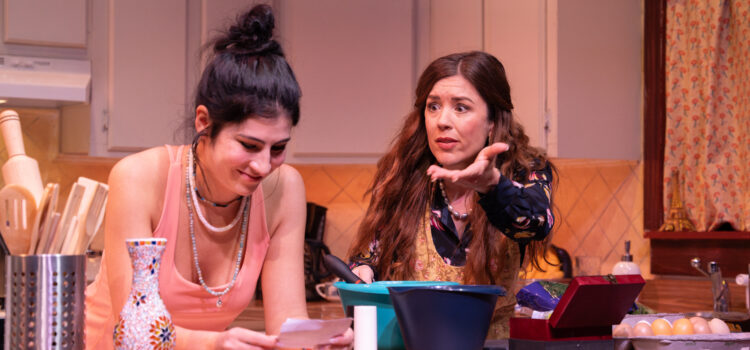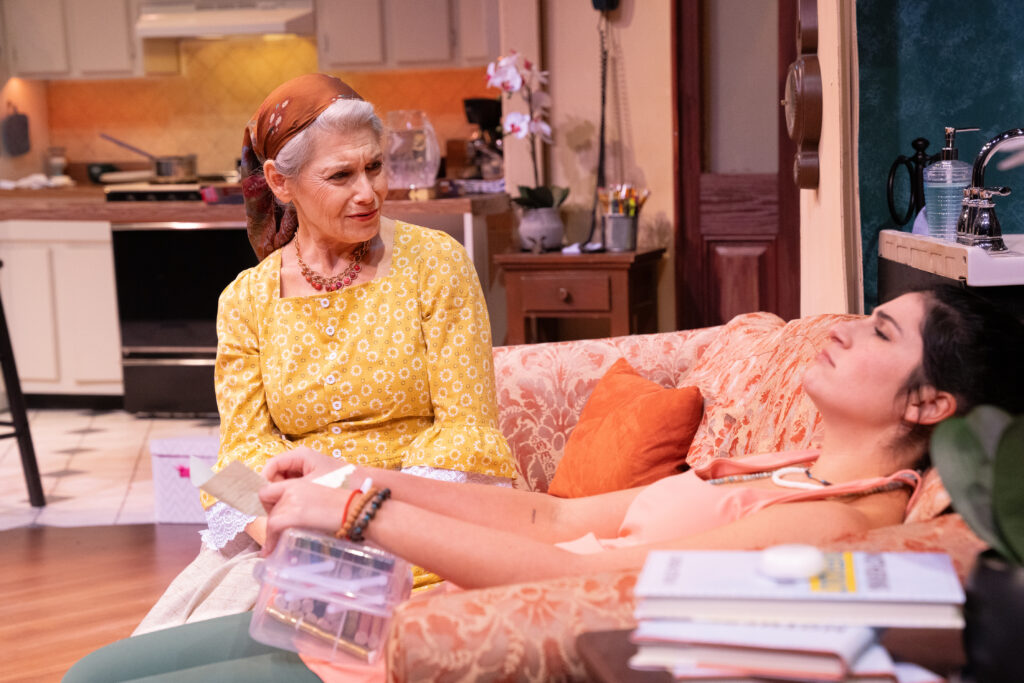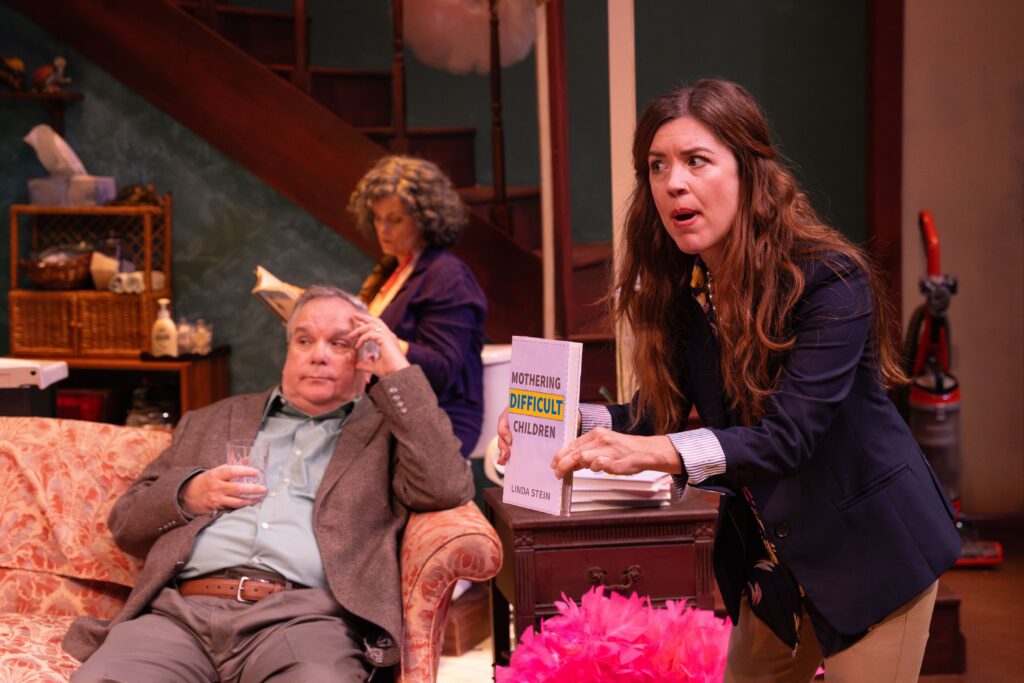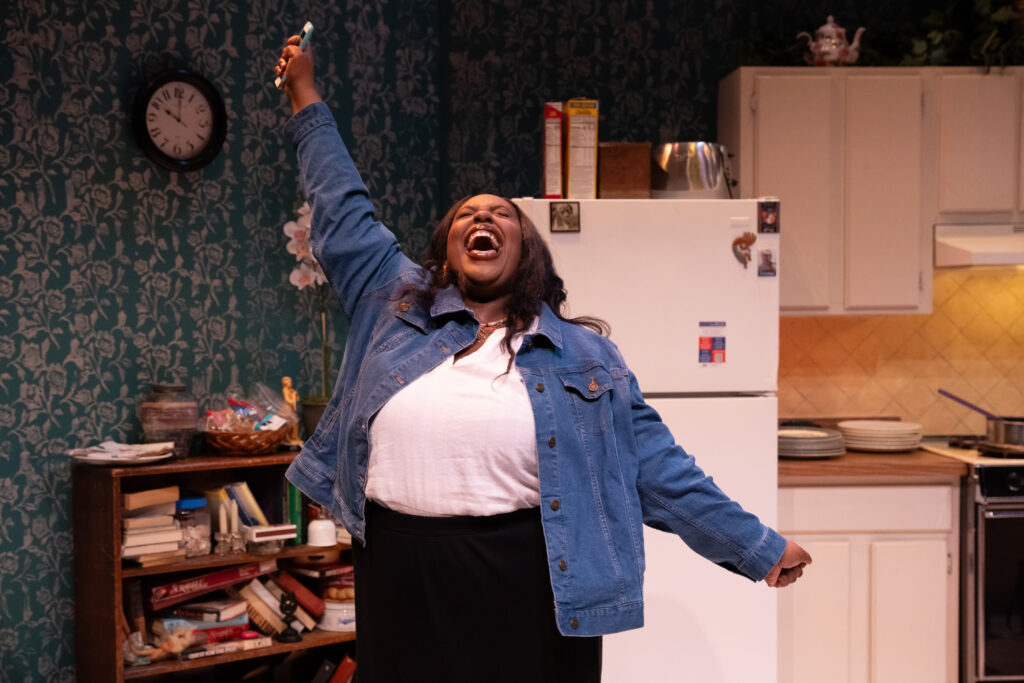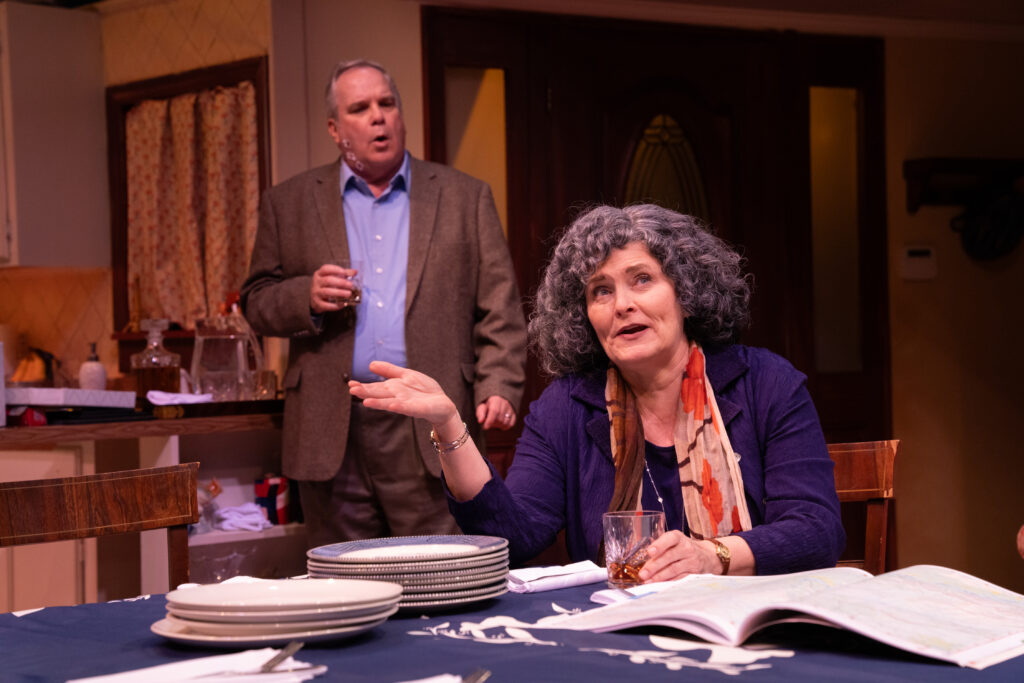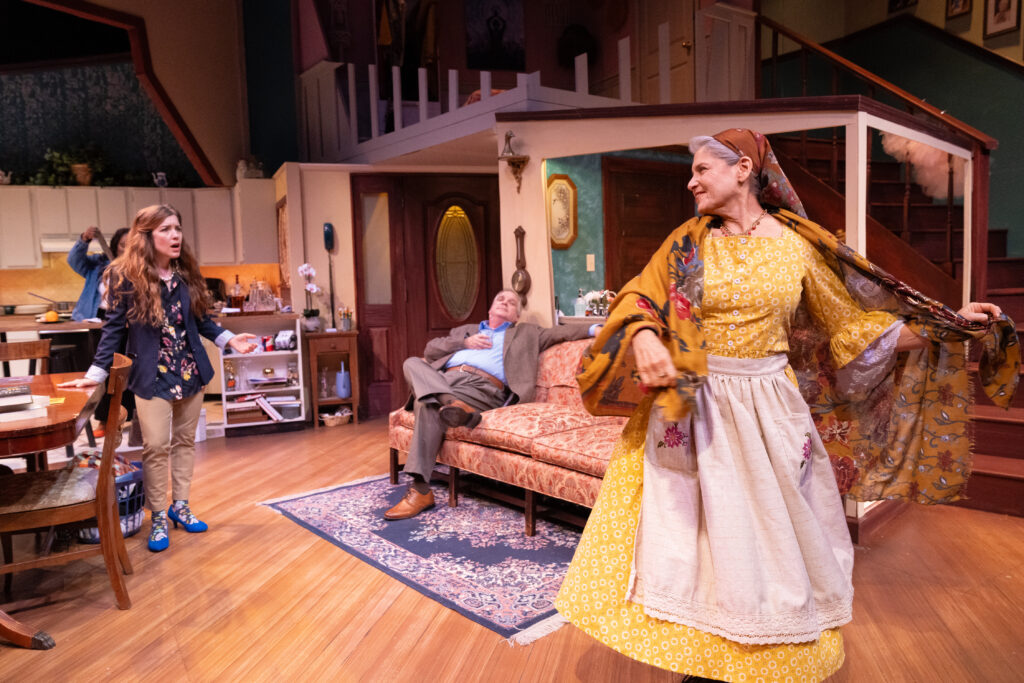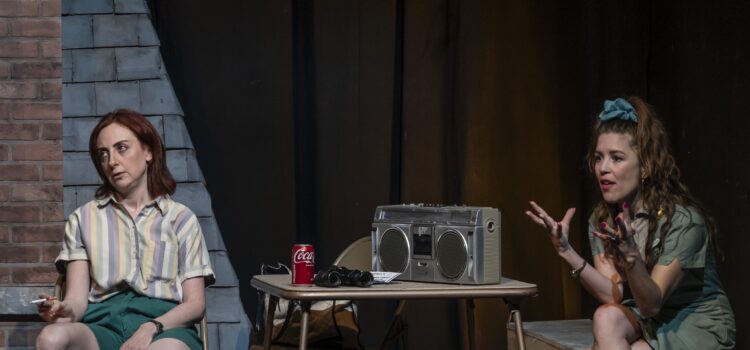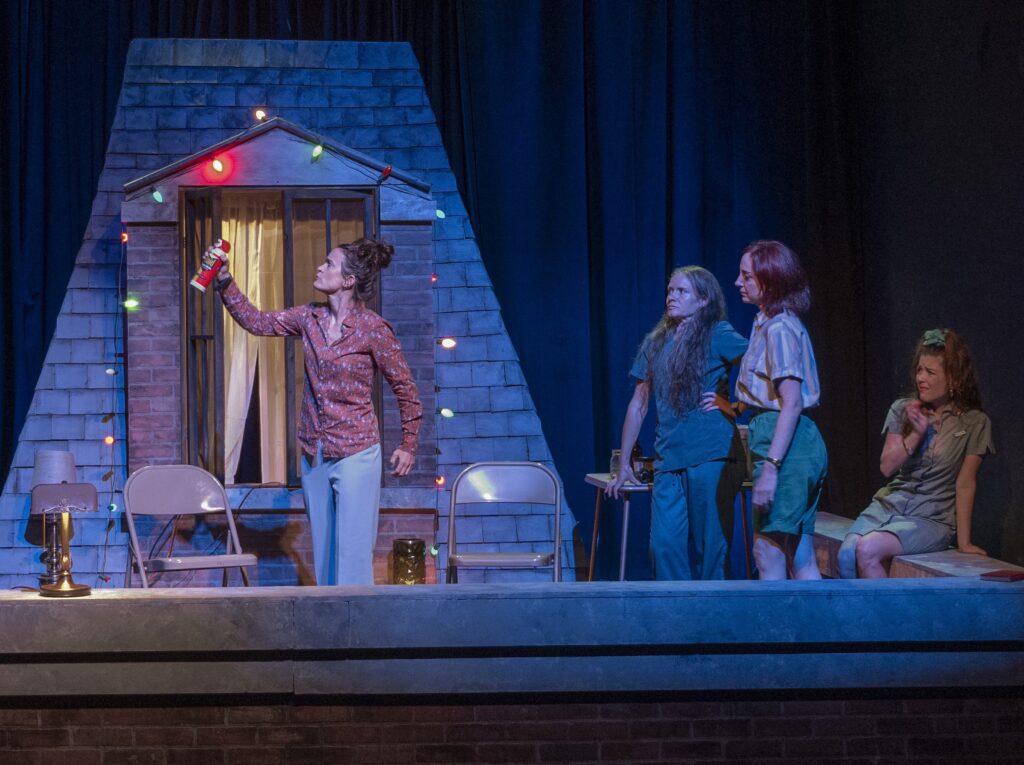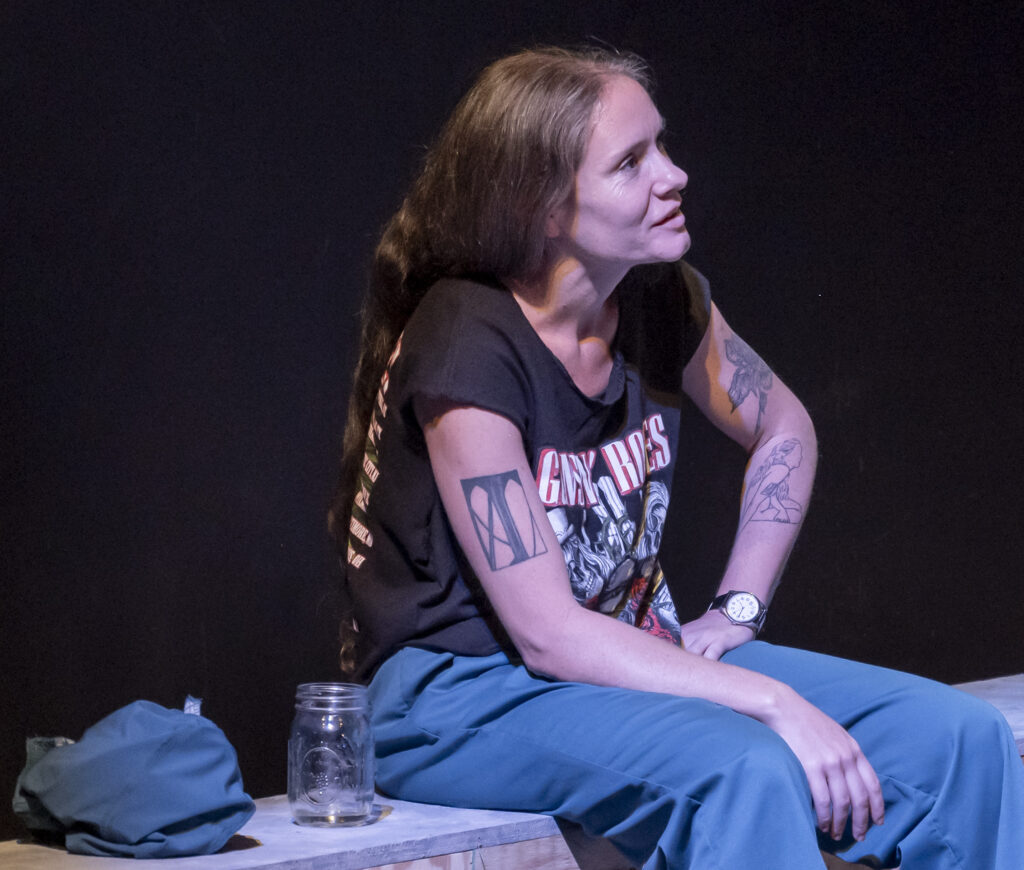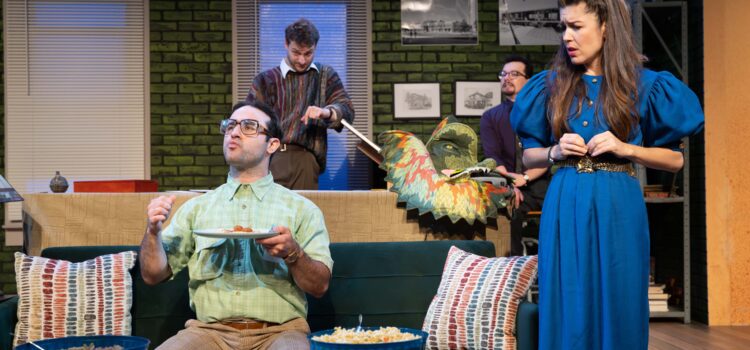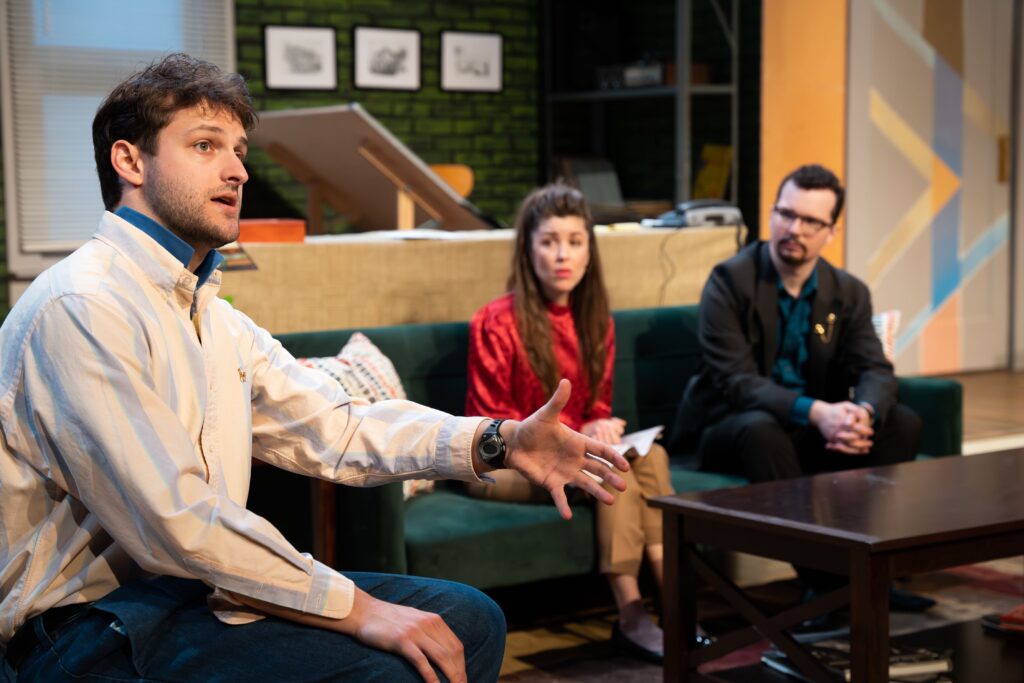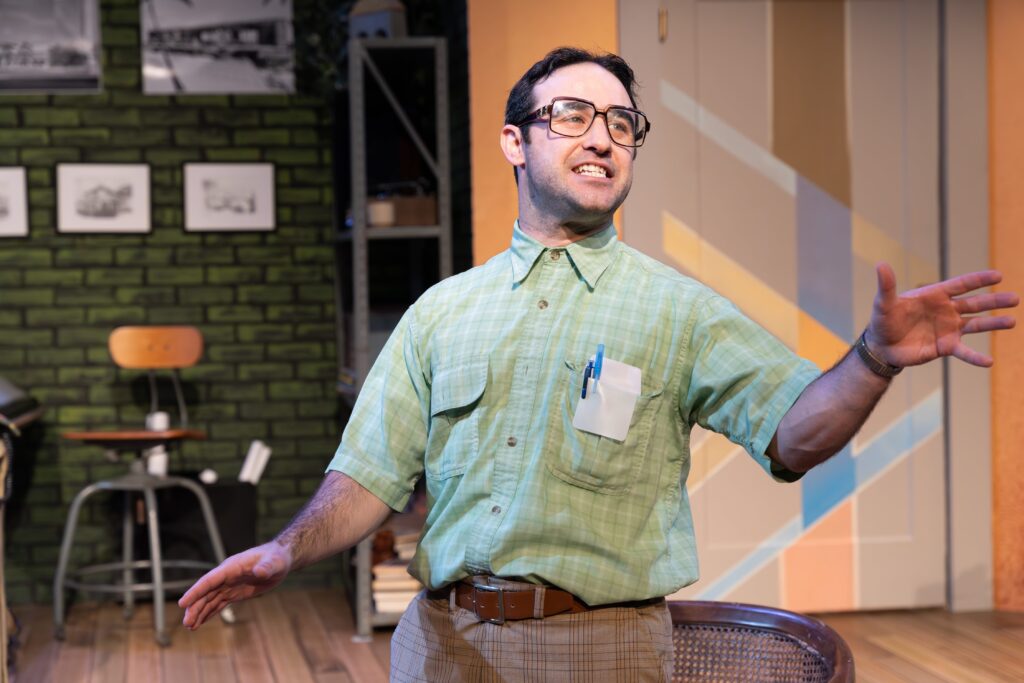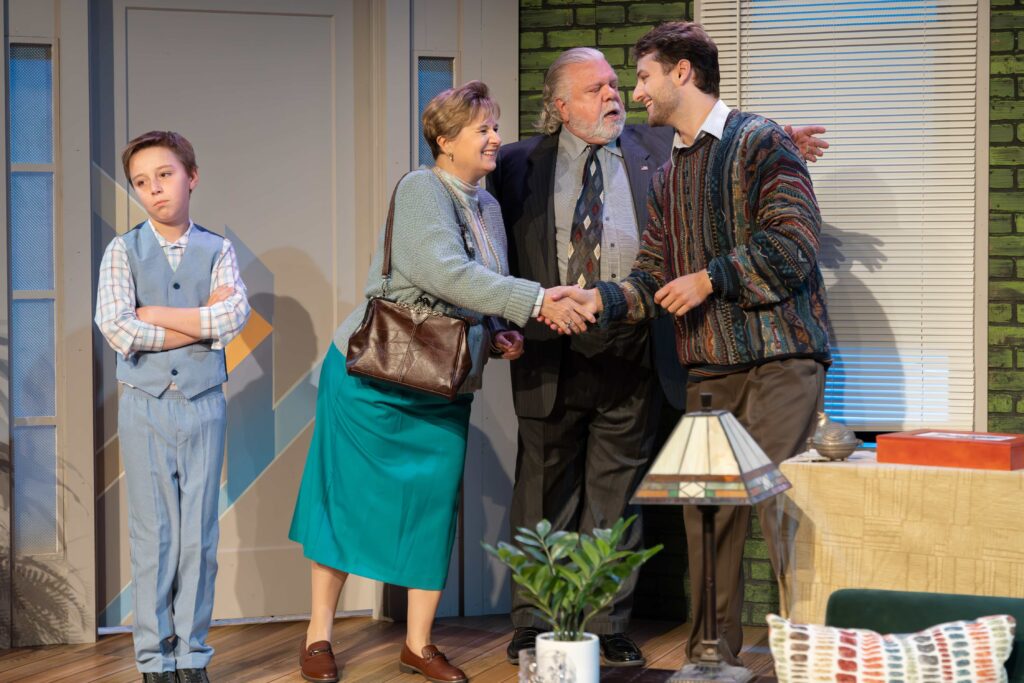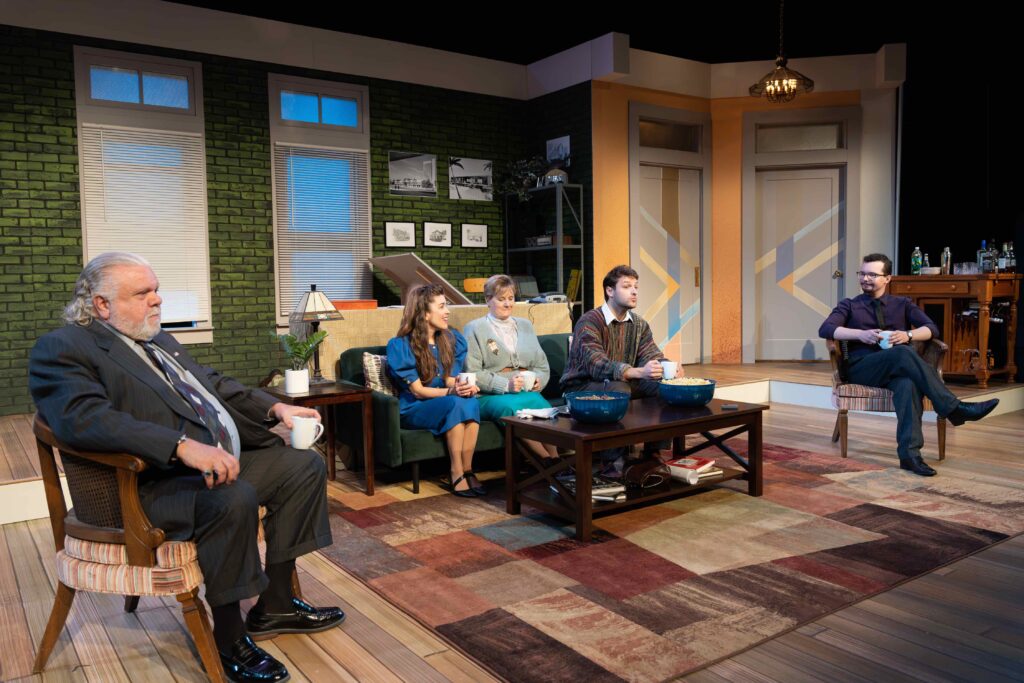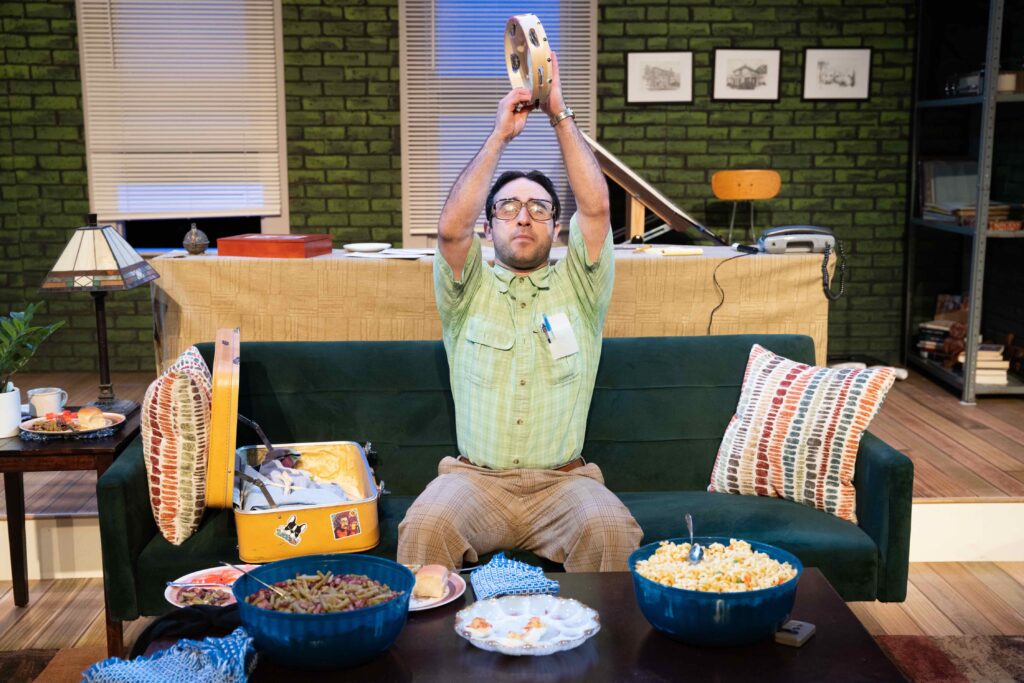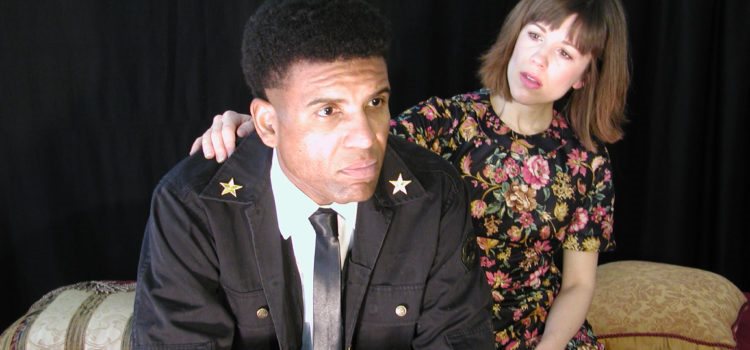By Lynn Venhaus
The awful truths of a dysfunctional family dealing with addiction and a lifetime of blame games is presented, unvarnished, in Eugene O’Neill’s potent semi-autobiographical masterwork, “Long Day’s Journey into Night.”
St. Louis Actors’ Studio has bravely tackled this challenging behemoth with ambition, dedication and determination, but with an interpretation that isn’t always as hard-hitting as one expected. Perhaps the subtlety sneaks up on us with a final emotional wallop at that sorrowful ending.
For those familiar with the clinical aspects of addiction psychology, the play is nearly a textbook example of how people in a family are affected by years of resentment, bickering, excuses, and unhealthy confrontations. And this is at an unenlightened time.
Mary Tyrone (Meghan Baker) has returned home after a sanitarium stay for her morphine addiction, which she blames on her rheumatoid arthritic pain, and her difficult pregnancy with her second son, Edmund. She fusses about her appearance, and frets about the family’s misfortunes.
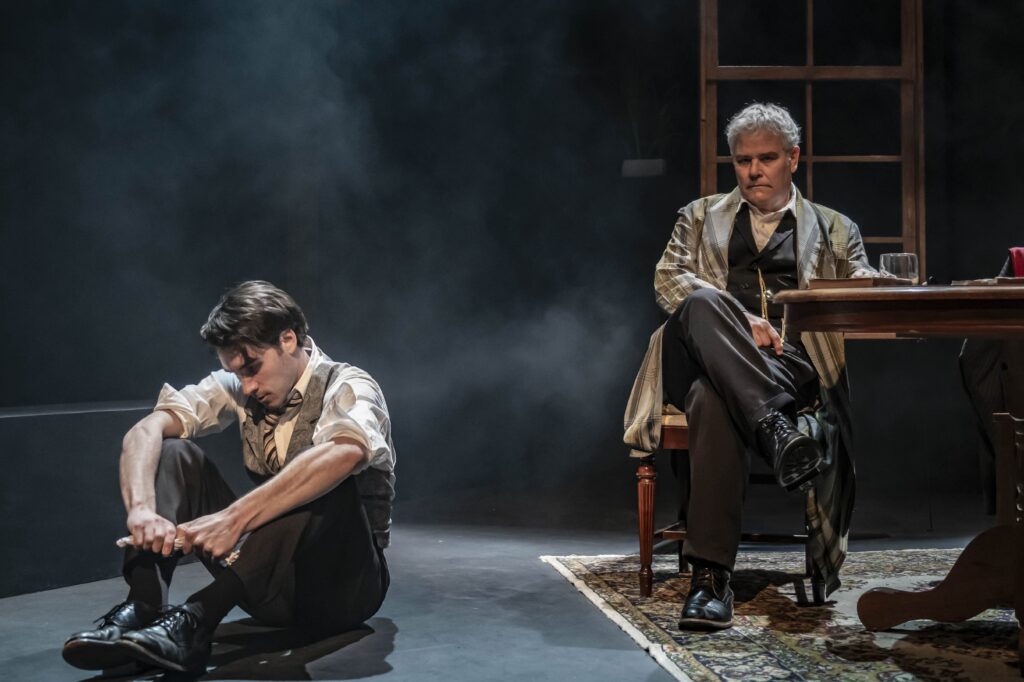
Her obsessive husband James (William Roth) is a once-famous stage actor who had a prosperous career, but is a notorious penny-pincher, haunted by his poor Irish immigrant upbringing. He is often chastising his sons for wasteful spending and not living up to their potential. He and the boys are heavy drinkers, likely he and Jamie are alcoholics, which they don’t acknowledge but keep enabling.
Oldest son Jamie (Joel Moses) is also an actor, not as successful, while Edmund (Dustin Petrillo) is a writer and poet, working for the local newspaper. He is also in ill health, likely consumption (tuberculosis). They are used to their flawed and stingy father finding fault with them, already beaten down by life.
Mary’s family is welcoming, but worried, afraid that she will slide back into use. Given the family’s penchant for blaming each other for their shortcomings and failings, it doesn’t take long to return to those bad habits.
They lack coping skills, and it’s obvious how deep the grudges go. It’s a sad, but inevitable dark trajectory, and unfortunately, a familiar one to many. Hence, the universal theme that remains recognizable.
Set in August 1912, over the course of one day, O’Neill wrote the play between 1939-1941, but it wasn’t staged until 1956, after the writer’s death in 1953. He posthumously won the Pulitzer Prize for Drama in 1957, and it is considered one of the great plays of the 20th century. Of course, these days, one can admit the exposition is lengthy, and the penchant for narrating memories is overused, but that was O’Neill’s style.
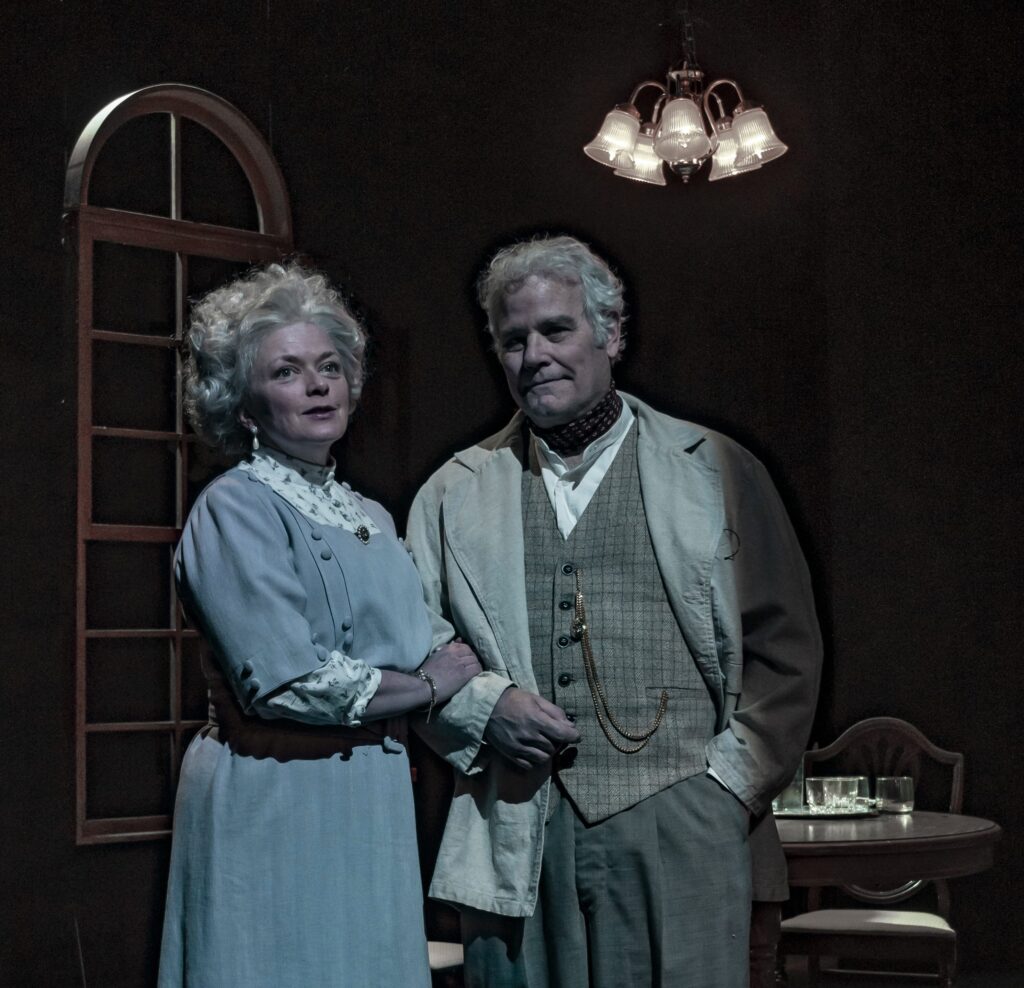
As characters tiptoe around their deeply felt animosity, they recite their laundry lists of grievances, and each of the four acts explores a toxic atmosphere of bitterness despite a foundation of familial love, although broken.
The gloomy setting is their seaside summer home in Connecticut, and the tech crew has incorporated mist rolling in and sounds of the sea, which is a nice atmosphere in contrast to the claustrophobic drawing room where most of the action, well heated conversations, take place.
Everyone excuses their behaviors, and as Mary, in serious denial, becomes increasingly miserable and delusional, no amount of numbing themselves through whiskey matters.
The assignment is to bring out each character’s humanity and that is a tough one. Director Austin Pendleton has taken a measured approach, and the pace does not sag. While at times, the parents seem to be talking at each other, not with each other, they hint at the inescapable conflicted feelings that make them unavailable emotionally for each other. However, Roth and Baker exhibit a tenderness towards each other at times.
Most impressive are the brothers, Moses and Petrillo, who are dynamic scene partners, conveying an unbreakable brotherhood bond even when they lash out at each other.
Petrillo’s performance as the brooding, seemingly doomed brother, is the right amount of fear, confusion, and conflict. He’s closest to his mother, and therefore crestfallen when he fears a relapse. He earns the most sympathy.
Jamie could just be a caricature of an insensitive jerk unable to break a cycle of irresponsibility and anger, but Moses has found the right shift in tone, the character’s inability to break his abusive cycle. He’s the more pitiable character.
The elder James is too stubborn and intolerant, which is to his detriment, so Roth’s performance is an unwavering one-note in judginess.. He can’t understand his family’s falling apart because it would mean he has to shoulder some of the blame, and he lacks that capability. I thought, because his background is old-timey stage-acting, he’d offer more grandstanding, but it’s a stern tone throughout. at times rushed.
As the most tragic Mary, Baker appeared to be too young for the emotional heft of the role, but perhaps she didn’t project her desperation enough. The haunted Mary has spent a lifetime of disappointment looking back and never dealing with the present issues at hand. She has become irrelevant and a bystander in her own life, which is incredibly morose. Nevertheless, her longing is palpable.
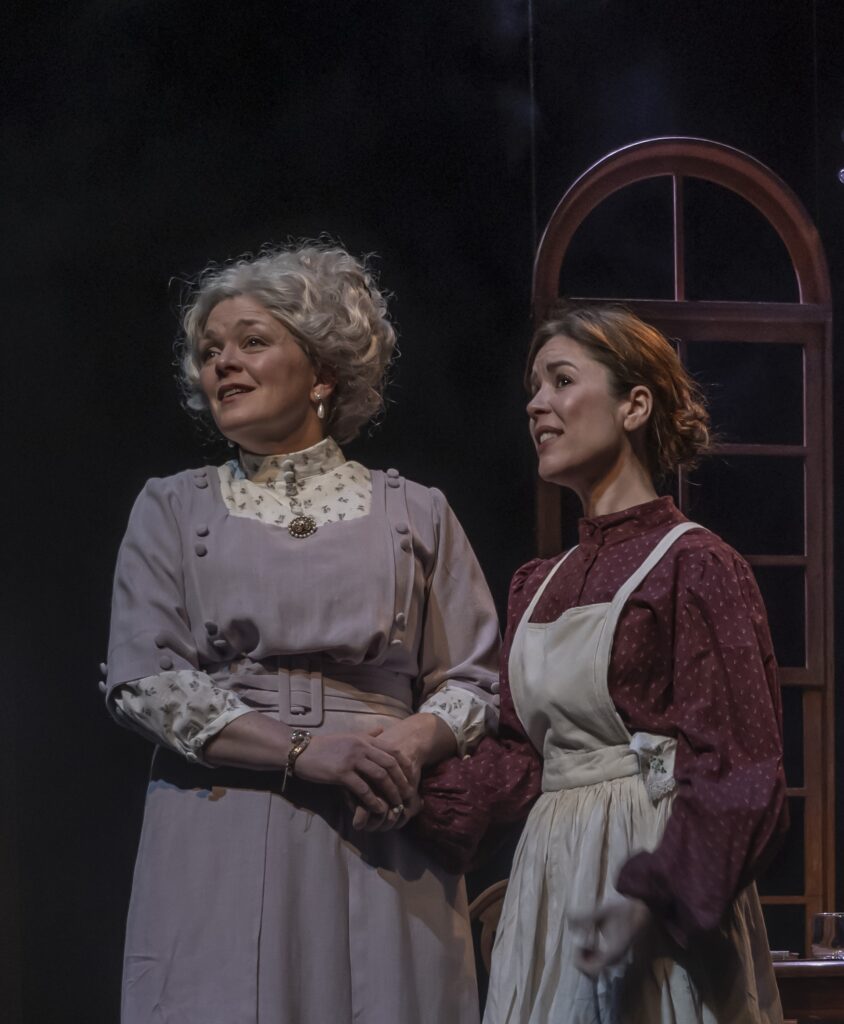
While the melancholy play is a mixture of fire and ice, it can appear tedious, but the celebrated Pendleton kept the action conventional, where the actors stay focused in the moment on the oppressive dysfunction. Amy J. Paige, longtime stage manager, is a master at calling a show, too.
Bridget Bassa, as the Irish maid Cathleen, engages in moments of levity, which are nice comic relief.
“Long Day’s Journey into Night” has strong technical work from scenic designer Patrick Huber, always a treat, who also designed the outstanding lighting. Costume designer Teresa Doggett’s period appropriate garb established the family’s positions, although Baker’s wig seems overwhelming. Noteworthy were Kristi Gunther’s crisp sound work, Chuck Winning’s technical direction, and Emma Glose’s props. Shawn Sheley’s work on the fight choreography was also convincing.
While a painful glimpse into one American family’s addiction ordeal, the fact that O’Neill was candid enough to recognize his trauma wasn’t unique, and lays bare fragile episodes we can identify with, and grow from (hopefully).
For anyone wondering if “Long Day’s Journey into Night” remains relevant, yes it does, and St. Louis Actors’ Studio’s effort is commendable because of the depth and difficulty required.
St. Louis Actors’ Studio presents “Long Day’s Journey into Night” from Feb. 10 to Feb. 23, Thursdays through Saturdays at 8 p.m., and Sundays at 3 p.m. at the Gaslight Theatre. The play is about 3 hours, with a 15-minute intermission. For tickets, visit www.Ticketmaster.com. They are also on sale at the box office an hour before showtime.
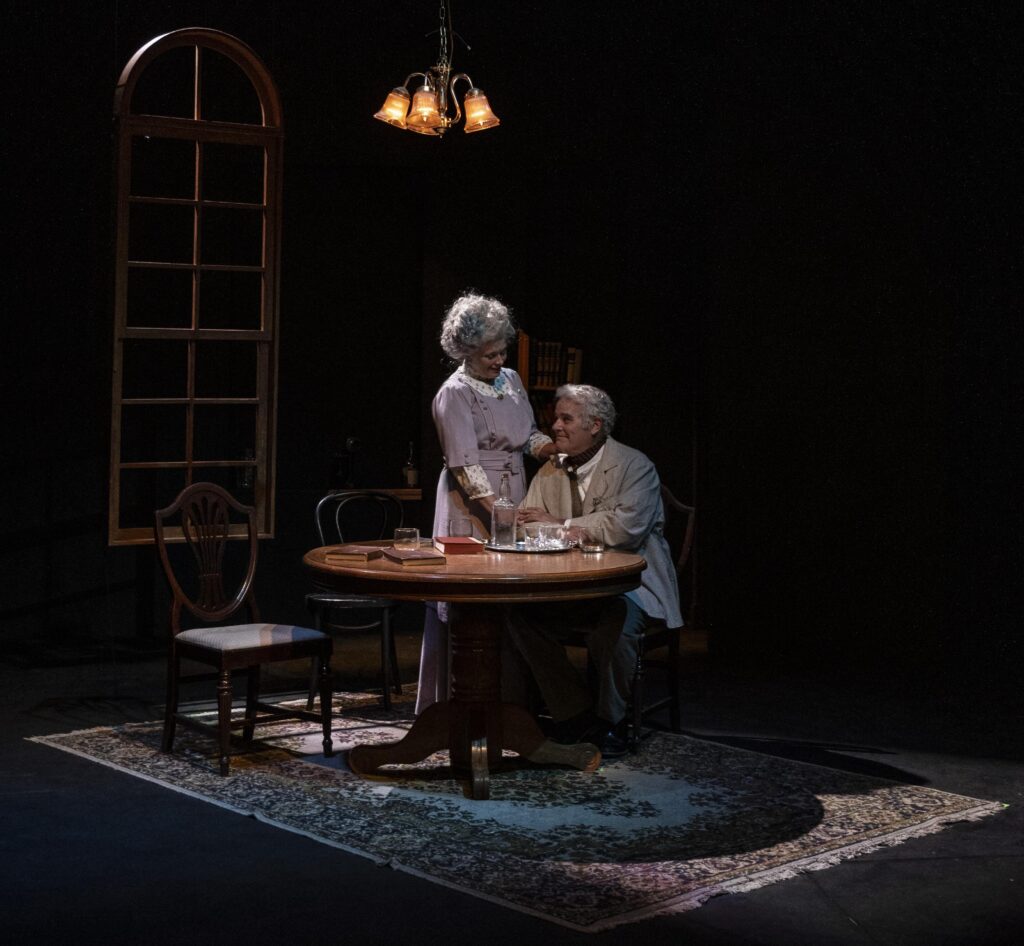

Lynn (Zipfel) Venhaus has had a continuous byline in St. Louis metro region publications since 1978. She writes features and news for Belleville News-Democrat and contributes to St. Louis magazine and other publications.
She is a Rotten Tomatoes-approved film critic, currently reviews films for Webster-Kirkwood Times and KTRS Radio, covers entertainment for PopLifeSTL.com and co-hosts podcast PopLifeSTL.com…Presents.
She is a member of Critics Choice Association, where she serves on the women’s and marketing committees; Alliance of Women Film Journalists; and on the board of the St. Louis Film Critics Association. She is a founding and board member of the St. Louis Theater Circle.
She is retired from teaching journalism/media as an adjunct college instructor.


